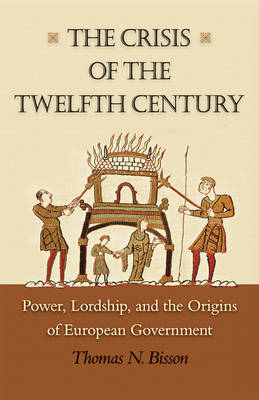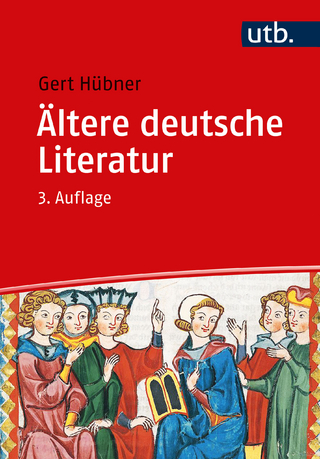
The Crisis of the Twelfth Century
Princeton University Press (Verlag)
978-0-691-13708-7 (ISBN)
- Titel ist leider vergriffen;
keine Neuauflage - Artikel merken
Medieval civilization came of age in thunderous events like the Norman Conquest and the First Crusade. Power fell into the hands of men around castles who imposed coercive new lordships in quest of nobility, heedless of the old public order. In "The Crisis of the Twelfth Century", acclaimed historian Thomas Bisson asks what it was like to live in a Europe without government, and he asks how people experienced power, and suffered. Rethinking a familiar history as a problem of origins, he explores the circumstances that impelled knights, emperors, nobles, and churchmen to infuse lordship with social purpose. Bisson traces the origins of European government to a crisis of lordship and its resolution.King John of England was only the latest and most conspicuous in a gallery of bad lords who dominated the populace instead of ruling it. Men like him had been all too commonplace in the twelfth century. More and more knights pretended to powers and status, encroached on clerical domains and exploited peasants, and came to seem threatening to social order and peace. Yet as Bisson shows, it was not so much the oppressed people as their tormentors who were in crisis.
Covering all of Western Christendom, this book suggests what these violent people - and the outcries they provoked - contributed to the making of governments in kingdoms, principalities, and towns. "The Crisis of the Twelfth Century" is an unparalleled cultural history of power in medieval Europe, and a monumental achievement by one of today's foremost medievalists.
Thomas N. Bisson is the Henry Charles Lea Professor of Medieval History (emeritus) at Harvard University. His books include "Tormented Voices: Power, Crisis, and Humanity in Rural Catalonia, 1140-1200" and "Cultures of Power: Lordship, Status, and Process in Twelfth-Century Europe".
Preface vii List of Illustrations xvii Usage and Conventions xix Abbreviations xxi I: Introduction 1 II: The Age of Lordship (875-1150) 22 Old Order 25 The Quest for Lordship and Nobility 31 Constraint, Violence, and Disruption 41 Cultures of Lordship 68 III: Lord- Rulership (1050-1150): The Experience of Power 84 The Papacy 87 West Mediterranean Realms 95 Le?n and Castile 95 In Sight of the Pyrenees 104 Imperial Lands 111 Bavaria 116 Lombardy 120 France 128 Anjou 129 Flanders 142 Northern Kingdoms 155 Capetian France 158 Norman England 168 IV: Crises of Power (1060-1150) 182 Uneasy Maturity 183 Dynastic Anxiety 183 Anxious Fulfillments 191 The Church 197 Troubled Societies 212 The Saxon Revolt and Its Consequences (1073-1125) 213 Castled France (ca. 1100-1137) 229 Troubles on the Pilgrims? Road (1109-36) 243 Flanders: The Murder of Charles the Good (1127-28) 259 England: "When Christ and His Saints Slept" (1135-54) 269 An Age of Tyranny? 278 V: Resolution: Intrusions of Government (1150-1215) 289 Great Lordship in Prosperity and Crisis 293 "Shadows of Peace" 306 Aquitaine: Princes of Ill Repute 308 Anjou: The Tyranny of Giraud Berlai 310 A Tyrannical Bishop(?): Aldebert of Mende (1151-87) 312 The Justice of Accountability 316 The Accountability of Fidelity (1075-1150) 322 Prescriptive Accountancy 325 Towards an Accountability of Office (1085-1200) 328 A Dynamic of Fiscal Growth (ca. 1090-1160) 329 Towards a New Technique (ca. 1110-75) 336 en gland: pipe rolls and exchequer 336 flanders: the grote brief and its origins 339 sicily: pluri- cultural conservancy? 343 catalonia: from exploitation to agency 345 Constraint, Compromise, and Office 349 Charters of Franchise: Some Lessons 350 Thresholds of Office 358 In Sight of Our Lady's Towers 362 Working with Power 369 Catalonia 371 England 378 France 398 The Roman Church 415 VI: Celebration and Persuasion (1160-1225) 425 Cultures of Power 430 Sung Fidelity 431 Courtly Talk 438 Learned Moralising 445 Expertise: Two Facets 456 Knowing 457 Knowing How 462 Pacification 471 The Capuchins of Velay 475 Politicised Power 484 The Crisis of Catalonia (1173-1205) 499 The Crisis of Magna Carta (1212-15) 515 States and Estates of Power 529 The States of Troubled Realms 530 The Great Lordship of Consensus 541 Towards Estates of Associative Power 548 Towards a Parliamentary Custom of Consent 556 VII: Epilogue 573 Glossary 583 Bibliography 587 Index 641
| Erscheint lt. Verlag | 2.11.2008 |
|---|---|
| Zusatzinfo | 5 Maps |
| Verlagsort | New Jersey |
| Sprache | englisch |
| Maße | 140 x 216 mm |
| Gewicht | 964 g |
| Themenwelt | Geschichte ► Allgemeine Geschichte ► Mittelalter |
| Geisteswissenschaften ► Geschichte ► Regional- / Ländergeschichte | |
| Sozialwissenschaften ► Politik / Verwaltung ► Politische Theorie | |
| ISBN-10 | 0-691-13708-0 / 0691137080 |
| ISBN-13 | 978-0-691-13708-7 / 9780691137087 |
| Zustand | Neuware |
| Haben Sie eine Frage zum Produkt? |
aus dem Bereich


